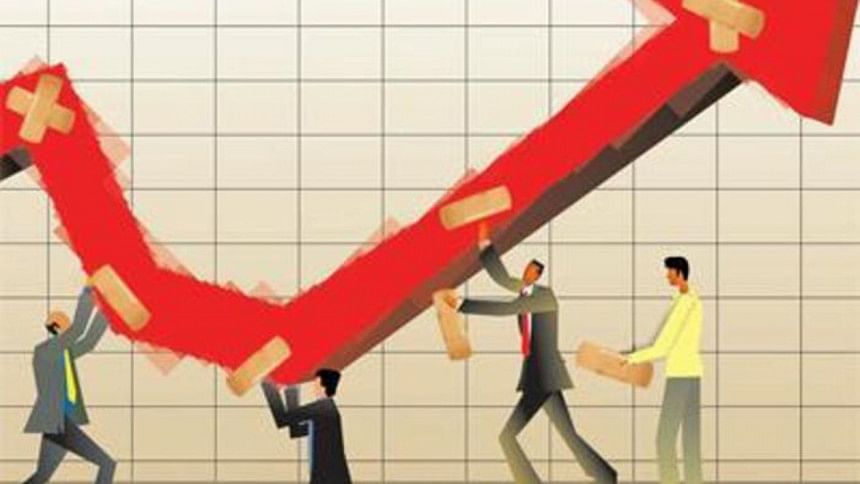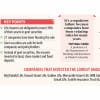Reforms for higher investment cannot be delayed

It should not be surprising that private sector investment's share in GDP is shrinking. Banks are drowning in excess cash to the point where call money rate collapsed to historic lows. By extension, current account surplus continued to rise signifying low rate of investment relative to the rate of savings. Add to that a heavier dose of public consumption expenditure – through pay hike of government employees – and the rest falls into place. How much confidence we can draw from 7 percent economic expansion (if indeed that is the case) when a key macroeconomic driver is waning, is debatable.
It is important to draw attention to the costs imposed on the economy due to low investment. First, with the fall in bank deposit rates, corporate(and retail) savers are earning nominal returns which can barely outrun inflation. Given low credit demand, banks have been racing towards low-yield government treasuries and central bank bills. Yield from treasuries has fallen even faster than banks' deposit rates. Eventually, both the real and banking sectors suffer reduced profitability.
Second, lower earnings translate to lower government revenue and, by extension, productive expenditure. Lower expenditure on public goods creates a vicious feedback loop where citizens become reluctant to turn over their hard-earned money to the government, again leading to lower tax collection. Eventually authorities downsize targeted budget, losing public credibility.
Third, in the absence of robust import demand, rapid foreign currency inflow compels the central bank to buy excess dollars from the foreign exchange market to ensure exchange rate stability. The resultant injection of local currency contradicts with the central bank's inflation target, forcing monetary authorities to sell bonds to soak up surplus liquidity. Such sterilisation imposes costs on the central bank as the interest paid on bonds exceeds that received on foreign exchange reserve holdings. So the central bank transfers lower profits to the government's budget.
It goes without saying that local and foreign entrepreneurs shy away from investing in an economy where getting electricity and land, minimising transport costs, enforcing contracts, trading across borders and accessing affordable capital are all uphill battles. Undoubtedly, infrastructure spending would ramp up private investment; but that is a lot easier said than done. A lot depends on the government's ability to operationalise Special Economic Zones and implement the proposed 'capital budget' consisting of mega infrastructure projects (nuclear power plants, major bridges, deep sea port, elevated expressways etc.). That said, big projects have long gestation periods so priority must also be given to Annual Development Programs (ADP). But if past record is any guide, one must wonder if the necessary resources can be generated for such ambitious capital spending?
The less said about tax collection the better. Fundamental challenges such as narrow tax base, lack of automation, tax evasion by the super-rich and illicit outflow of funds undeniably hold back Bangladesh's infrastructure financing potential. Assuming the new VAT law boosts revenue growth to a certain extent, authorities would still have to finance fiscal deficit around 4 percent of GDP if they want to kickstart infrastructure development.
Here lies the need for directing a portion of Bangladesh's growing stock of foreign exchange reserves for productive public expenditure. No doubt, return on investment would be far higher than the paltry interest that reserves generally earn in foreign government bonds (as a matter of fact, reinvesting now in short-term European debt will earn negative interest). Introducing a dynamic strategy where reserves in excess of 5-6 months of import cover are allocated for infrastructure financing is the logical way forward.
Make no mistake; collecting resources is only one side of the coin. Better spending is the other. That public investment worth 7 percent of GDP has hardly eased infrastructure constraints is evidence of low spending quality. Higher accountability and transparency in cash management, government procurement process, project management, monitoring, and evaluation are steps long overdue. Consulting specialists to strengthen implementation capacity may also be considered. Such reforms will also accelerate disbursement of concessional loans from development partners.
Strengthening public finance needs to be complemented by efficient financial markets. A banking sector plagued by bad assets and a bond market lacking depth does not help business expansion. Only time will tell if the recently appointed 'observers' to public banks can put a dent on non-performing loans. In the meantime, deepening the bond market will enable the government to finance fiscal deficits and provide retail, SME and large corporates a new channel for investing and borrowing. Strong bond markets also strengthen monetary policy's interest-rate transmission and compel banks to be more efficient. With national savings rate rising this year, now is a time as good as ever to deepen the debt market. This will require an enabling regulatory environment with incentives such as tax exemptions, issuing benchmark bonds, establishing robust trading platforms with effective clearing and settlement systems, stimulating liquidity in secondary market by simplifying trading procedures and encouraging institutions to trade bonds, developing various corporate debt instruments and finally, establishing derivatives market with instruments of long maturities to hedge against interest rate, exchange rate and default risks.
To be sure, a period of sustained investment boom requires both domestic as well as foreign demand. For all the hype around Bangladesh becoming increasingly integrated with the global economy, trade policy still suggests the exact opposite. Be it rolling back trade restrictions to diversify exports, exploring higher value-added products or striking free-trade agreements, Bangladesh is rapidly falling behind global trends.
True, even an endless list of reforms will not sustain investments if political conditions take a turn for the worse. Be that as it may, authorities can no longer delay reforms which will raise confidence of private investors – domestic and foreign. Political will is essential.
The writer currently works as a macroeconomic Research Analyst for an organisation in Washington D.C. He is a Fellow for the Asian Center for Development in Dhaka.
Email: [email protected]

 For all latest news, follow The Daily Star's Google News channel.
For all latest news, follow The Daily Star's Google News channel. 








Comments